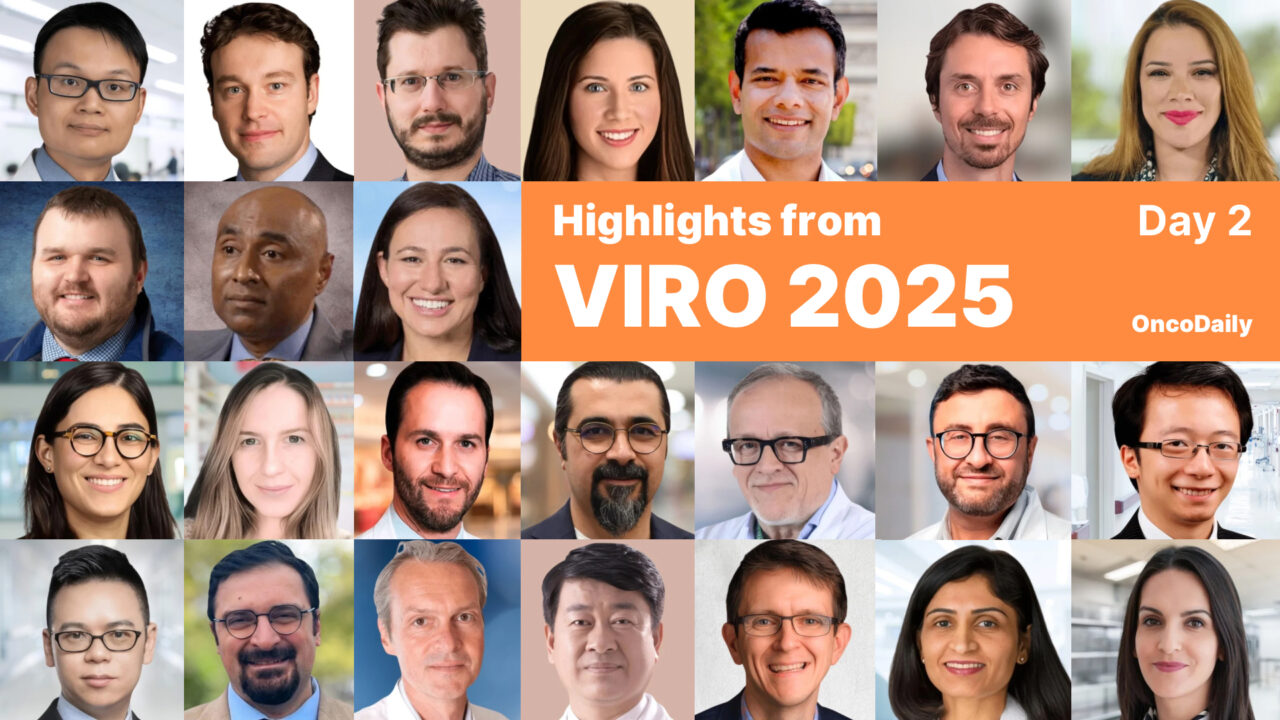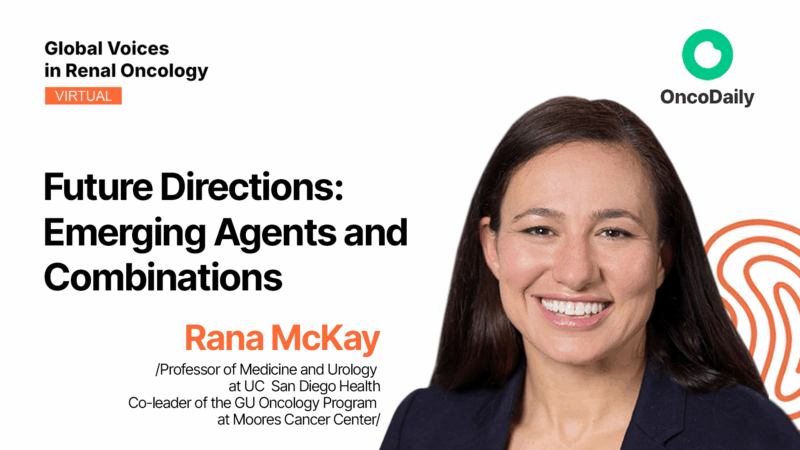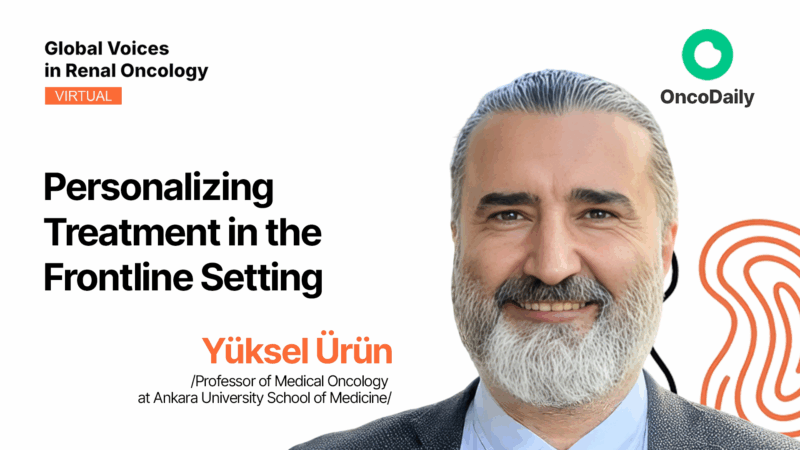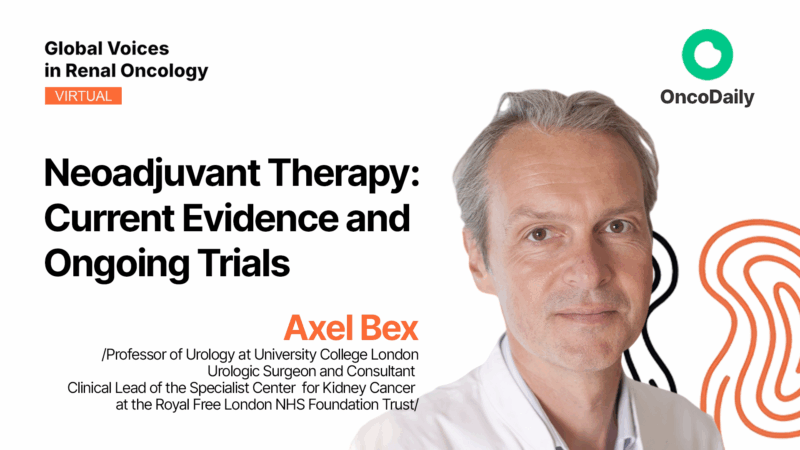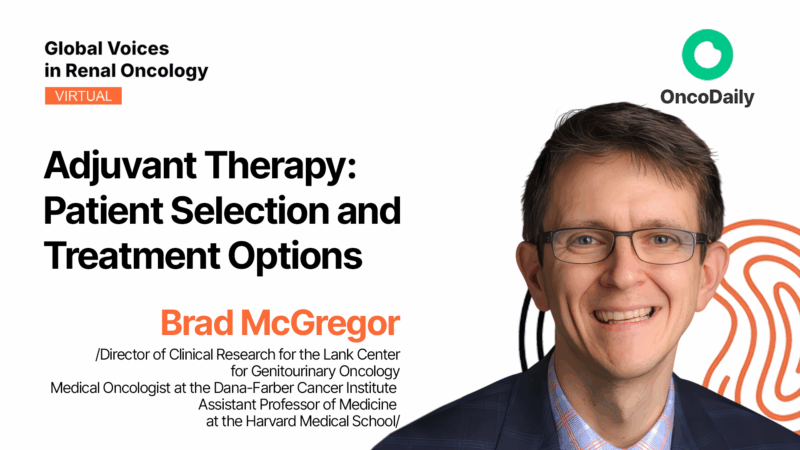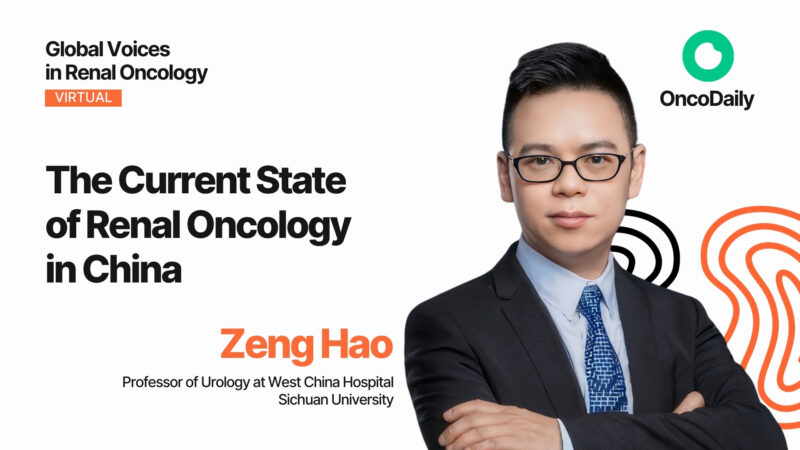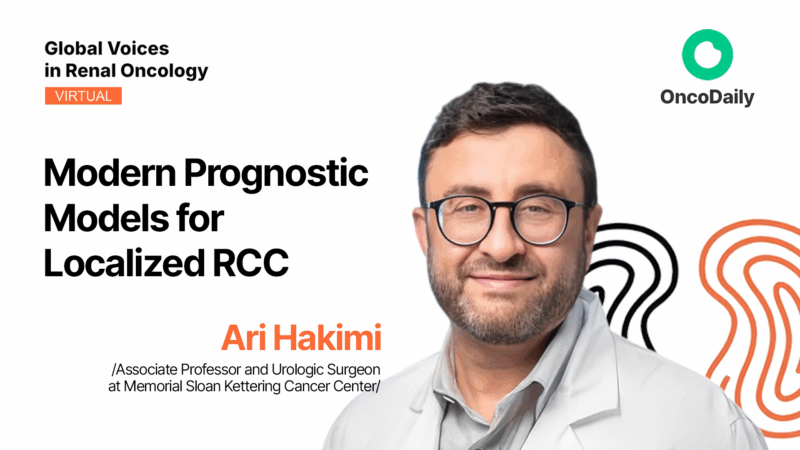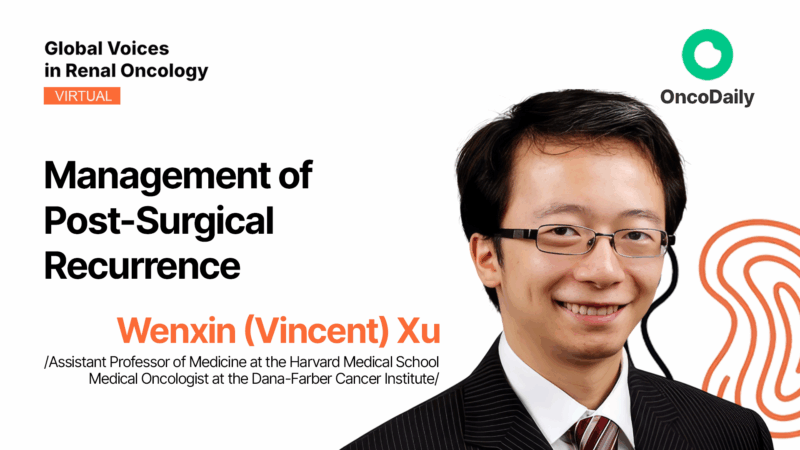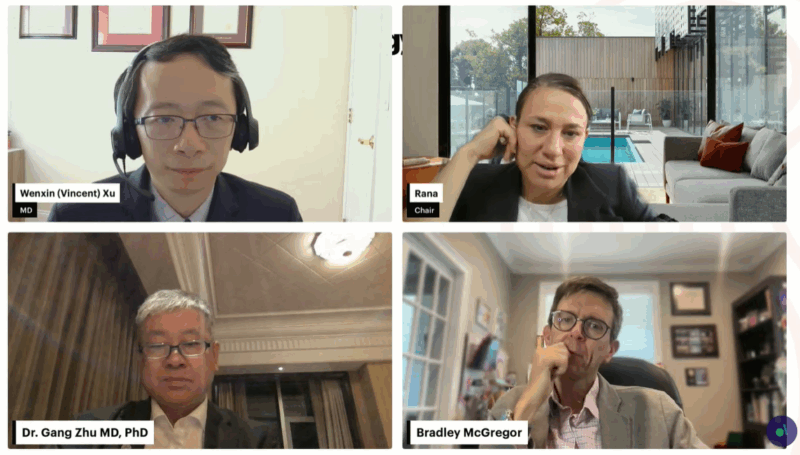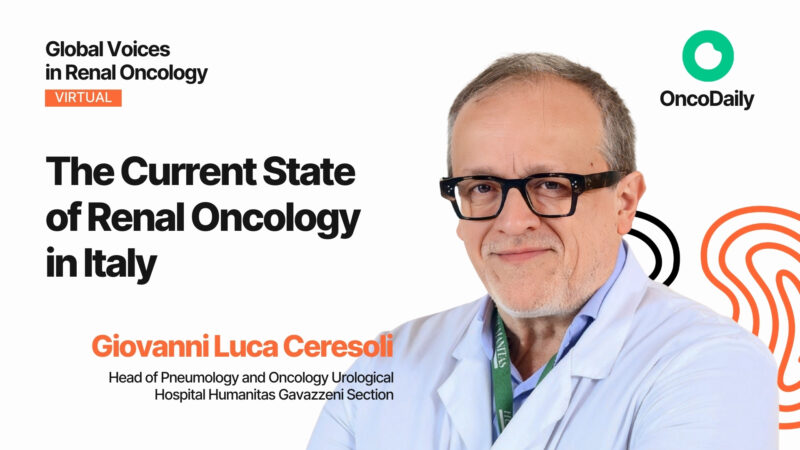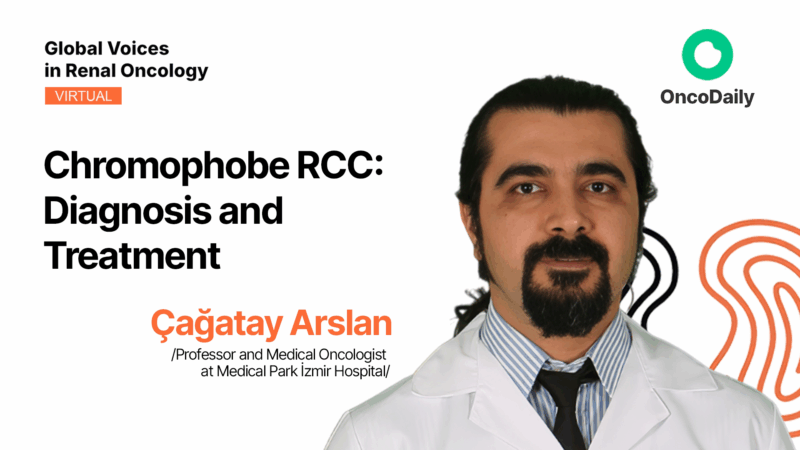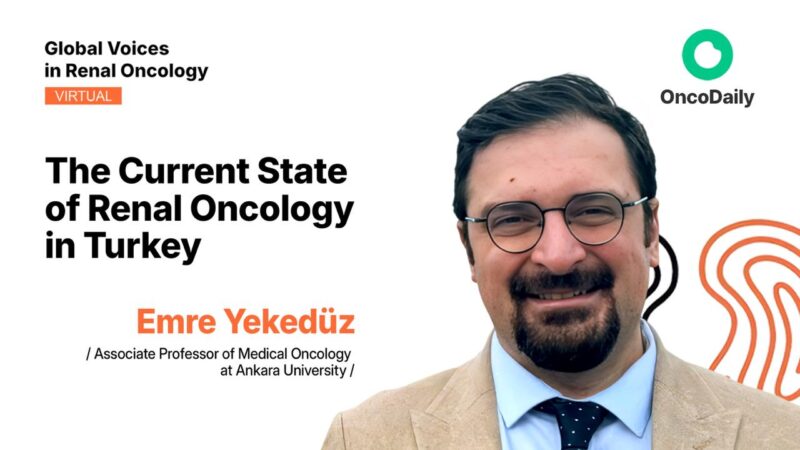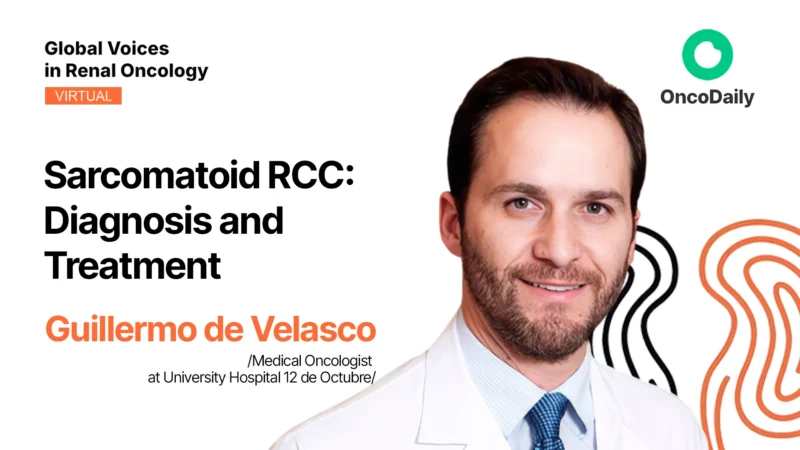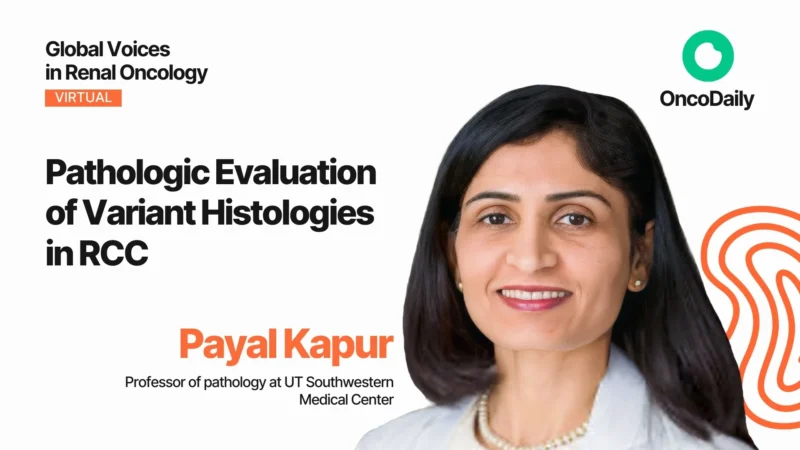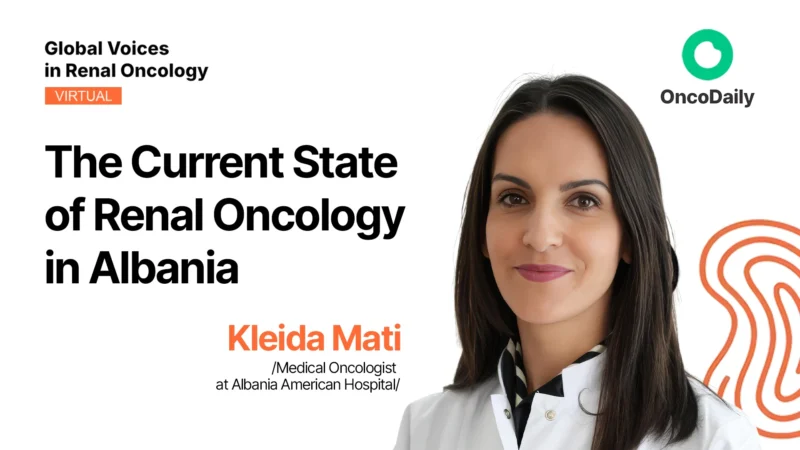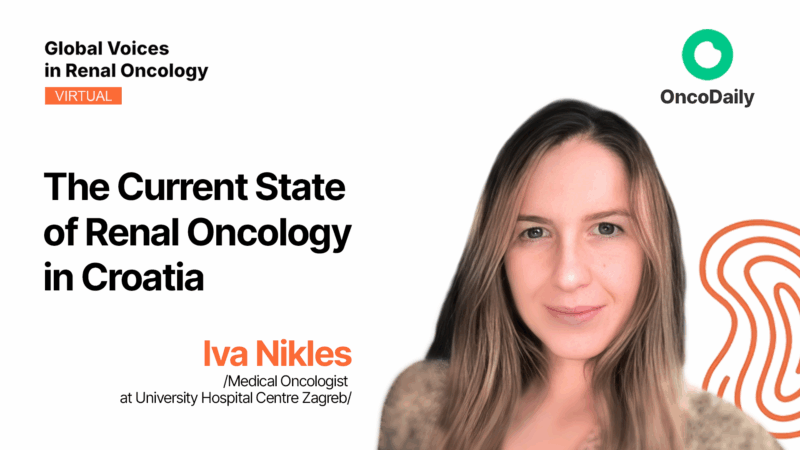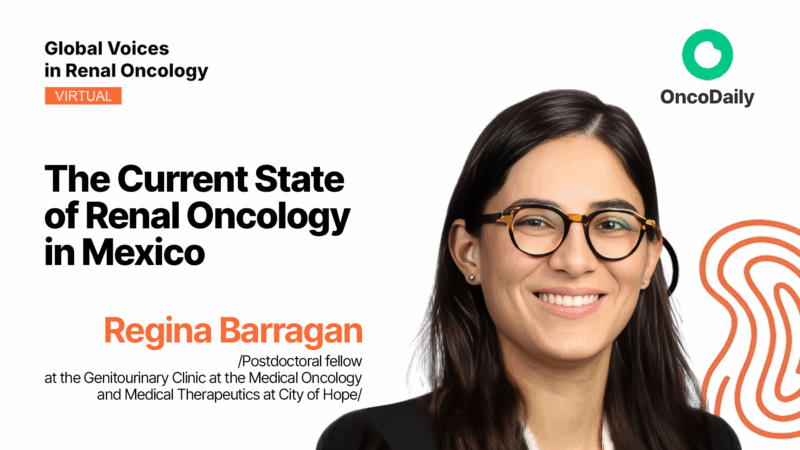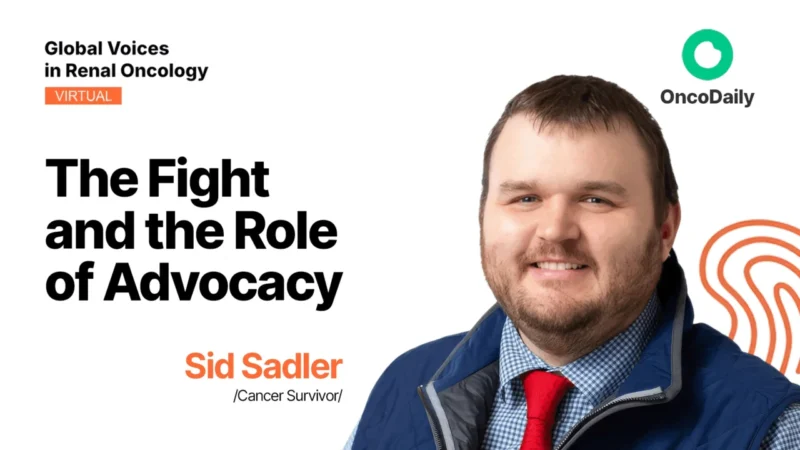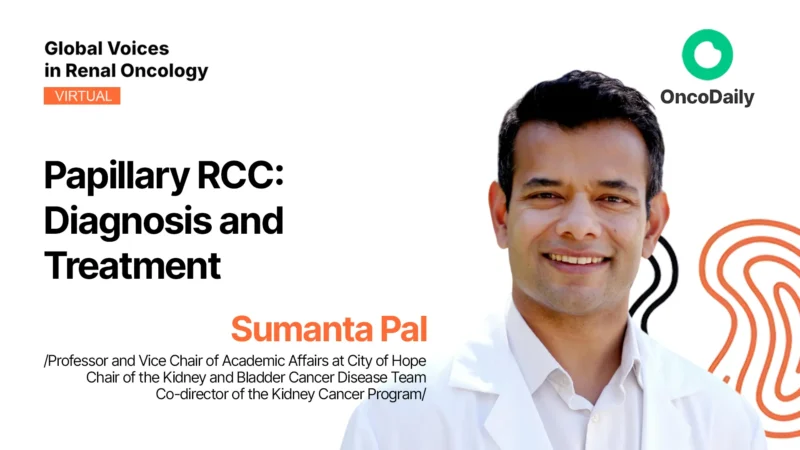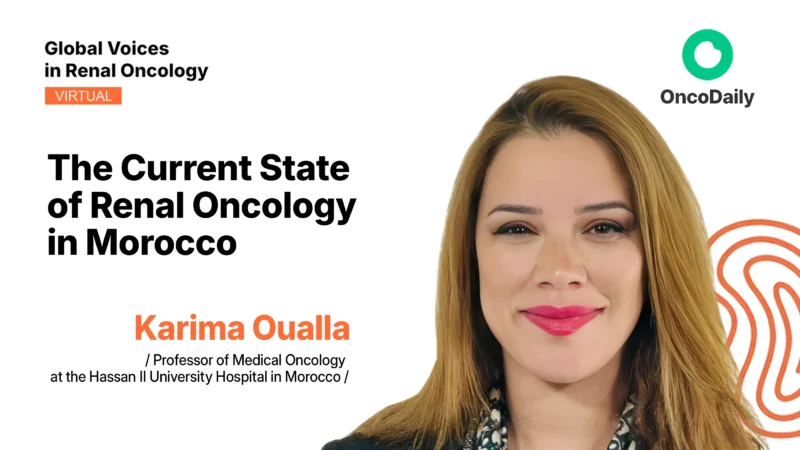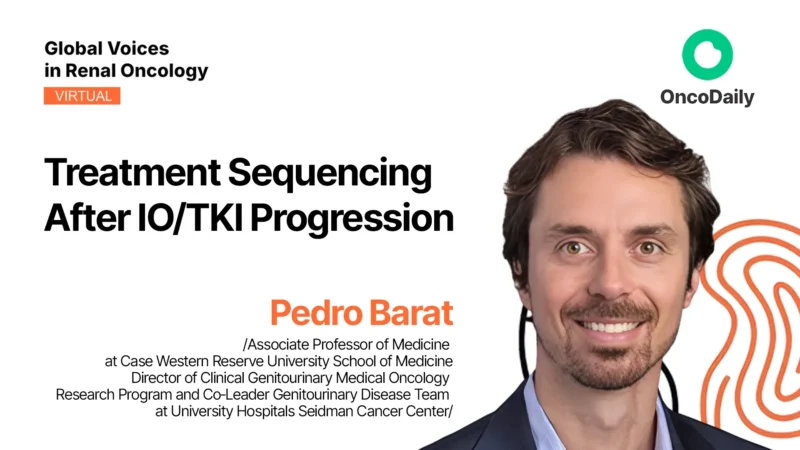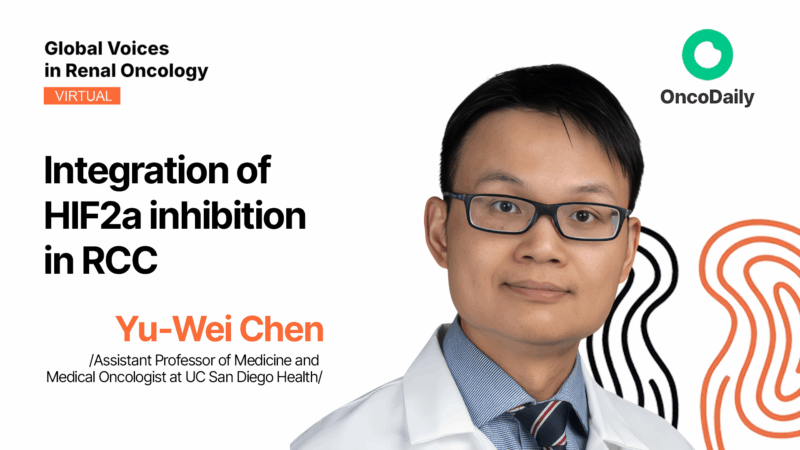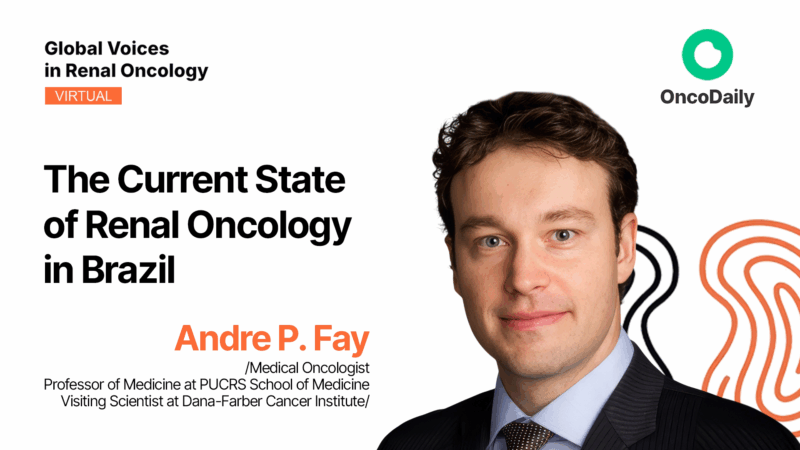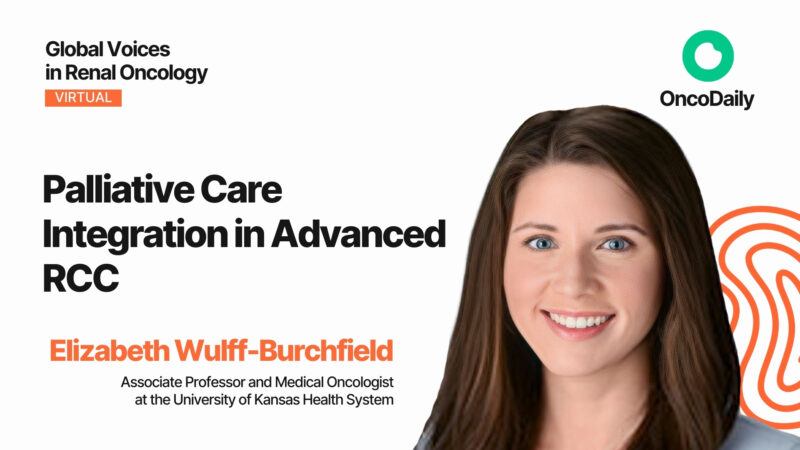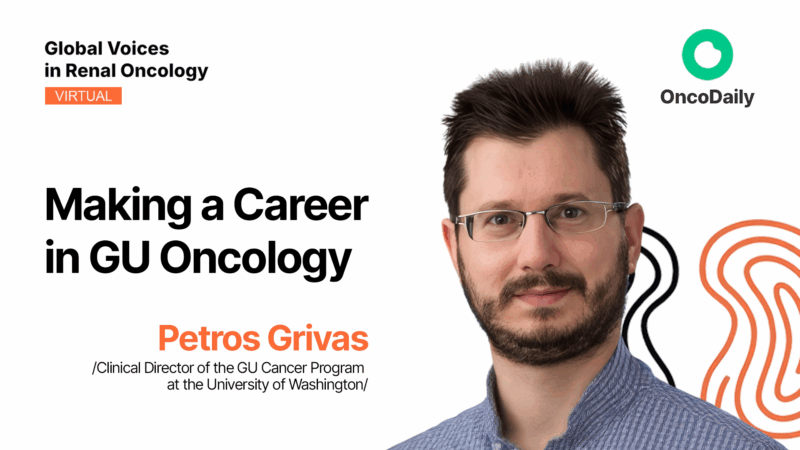The Global Voices in Renal Oncology (VIRO) Virtual Congress, organized by OncoDaily, continued on September 12, 2025, for its second and final day. Chaired by Dr. Rana McKay with Dr. Yüksel Ürün as co-chair, the congress gathered nearly 50 global experts to discuss innovations and challenges in renal oncology.
Chair
Co-Chair
Day 2 built on the momentum of the opening sessions, with over 20 speakers presenting cutting-edge perspectives on topics ranging from surgical innovations and frontline therapies to regional experiences and advocacy.
The morning began with Dr. Gang Zhu (China), President of CACA Genitourinary Cancer Holistic Rehabilitation Society, showcasing how AI-enhanced holographic imaging is transforming robotic surgery, improving precision, functional preservation, and efficiency in renal tumor operations.
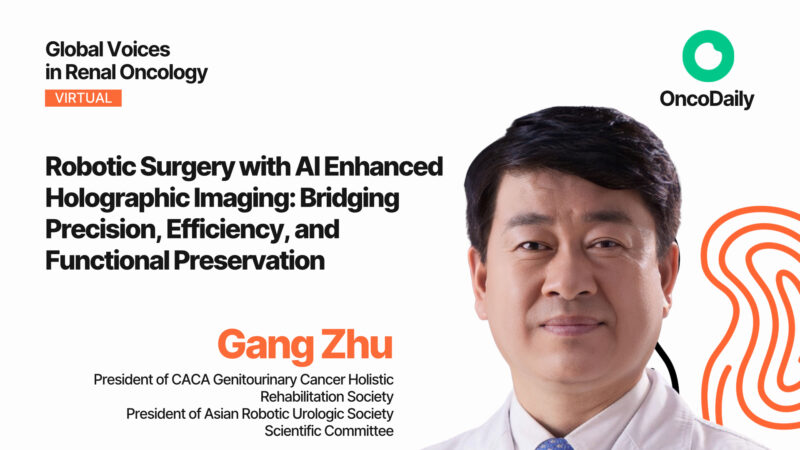
Following this, Dr. Axel Bex (UK), Urologic Surgeon and Consultant Clinical Lead of the Specialist Center for Kidney Cancer at the Royal Free London NHS Foundation Trust, reviewed the latest evidence from neoadjuvant therapy trials, underscoring where perioperative strategies might add value for high-risk RCC patients.
Dr. Brad McGregor (USA), Director of Clinical Research for the Lank Center for Genitourinary Oncology, explored adjuvant therapy options, emphasizing patient selection criteria that balance recurrence risk with treatment burden. Regional perspectives followed, with Dr. Zeng Hao (China), Professor of Urology at West China Hospital, Sichuan University, presenting the current state of renal oncology in China, highlighting advances in access to immunotherapy and the rapid integration of new diagnostic technologies.
The session then turned to risk assessment and recurrence. Dr. Ari Hakimi (USA), Associate Professor and Urologic Surgeon at Memorial Sloan Kettering Cancer Center, discussed the evolution of modern prognostic models for localized RCC, showing how molecular and clinical variables are being combined for more personalized stratification.
Dr. Wenxin (Vincent) Xu (USA), Medical Oncologist at the Dana-Farber Cancer Institute, addressed the management of post-surgical recurrence, offering practical approaches for monitoring and treatment after nephrectomy.
In a panel discussion, Dr. Rana McKay (USA), Professor of Medicine and Urology at UC San Diego Health and Co-leader of the GU Oncology Program at Moores Cancer Center, led an interactive exchange on risk stratification and perioperative management, highlighting real-world case applications.
Additional international insights came from Dr. Giovanni Luca Ceresoli (Italy), Head of Pneumology and Oncology Urological Hospital Humanitas Gavazzeni Section, who outlined Italy’s progress in renal oncology, and Dr. Çağatay Arslan (Turkey), Professor and Medical Oncologist at Medical Park İzmir Hospital, who reviewed diagnosis and treatment of chromophobe RCC, a challenging variant subtype.
The program continued with Dr. Emre Yekedüz (Turkey), Associate Professor of Medical Oncology at Ankara University, reporting on the state of renal oncology in Turkey, followed by Dr. Guillermo de Velasco (Spain), Medical Oncologist at Hospital Universitario 12 de Octubre in Madrid, who presented new data and strategies for managing sarcomatoid RCC, an aggressive histology requiring tailored approaches.
Dr. Payal Kapur (USA), Professor of Pathology at UT Southwestern Medical Center, provided a pathologist’s perspective, stressing the critical role of precise histological evaluation for variant RCCs.
Regional updates from Dr. Kleida Mati (Albania), Medical Oncologist at Albania American Hospital, and Dr. Iva Nikles (Croatia), Medical Oncology Resident at Sestre Milosrdnice University Hospital Center, spotlighted challenges in diagnostic infrastructure and patient access to therapies, while Regina Barragan (Mexico), Postdoctoral Fellow at the Genitourinary Clinic, Medical Oncology and Therapeutics, City of Hope, emphasized the progress and ongoing disparities in Latin America’s renal cancer landscape.
A unique highlight came from Sid Sadler (USA), who spoke about the role of advocacy in the fight against kidney cancer, stressing patient-driven movements and the importance of amplifying survivor voices in shaping research priorities.
Scientific sessions resumed with Dr. Sumanta Pal (USA), Chair of the Kidney and Bladder Cancer Disease Team at City of Hope, who delivered a deep dive into papillary RCC management, highlighting promising targeted and immune-based strategies. In a complementary panel, Dr. Ravi Karra (USA) led a case-based discussion on variant histologies, bringing together perspectives across pathology, surgery, and oncology.
Later in the afternoon, Dr. Karima Oualla (Morocco), Professor of Medical Oncology at the Hassan II University Hospital in Morocco, outlined renal oncology care in North Africa, followed by Dr. Pedro Barata (USA), Director of Clinical Genitourinary Medical Oncology Research Program at University Hospitals Seidman Cancer Center, who shared strategies for sequencing treatment after IO/TKI progression, drawing from trial evidence and real-world experience. Dr. Yu-Wei Chen (USA), Assistant Professor of Medicine and Medical Oncologist at UC San Diego Health, discussed the integration of HIF2α inhibition in RCC, describing how this new class of therapy is reshaping second-line standards.
The program also highlighted broader aspects of care. Dr. Andre P. Fay (Brazil), Medical Oncologist and Professor of Medicine at PUCRS School of Medicine, shared insights on renal oncology in Brazil, underscoring disparities and innovation in Latin America. Dr. Elizabeth Wulff-Burchfield (USA), Associate Professor and Medical Oncologist at the University of Kansas Health System, presented on the integration of palliative care in advanced RCC, emphasizing quality-of-life benefits when supportive care is introduced early.
The day concluded with a forward-looking session from Dr. Rana McKay (USA) on emerging agents and novel combinations, setting the stage for the next era of renal cancer therapy. Finally, Dr. Petros Grivas (USA), Clinical Director of the GU Cancer Program at the University of Washington, closed the congress with a personal reflection on building a career in GU oncology, inspiring young clinicians and researchers to pursue excellence in this rapidly evolving field.
Day 2 of VIRO 2025 reflected the global spirit of the meeting, weaving together surgical innovations, systemic therapy advances, regional perspectives, advocacy, and future directions. Together with Day 1, the congress underscored OncoDaily’s mission to create a truly international platform for collaboration and progress in renal oncology.
More on VIRO 2025 can be found on Oncodaily website.
Written by Sergey Badalyan, MD


